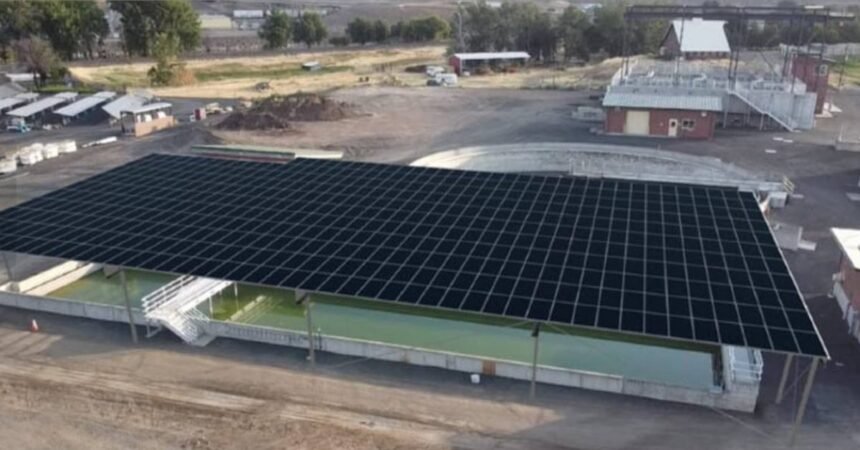The City of Pendleton, Oregon, recently unveiled a groundbreaking solar canopy at its wastewater treatment plant, marking a significant milestone in renewable energy innovation in the region. Developed in collaboration with Ameresco, an energy solutions provider based in Massachusetts, the project features a 240-kilowatt (kW) solar PV canopy that is projected to generate approximately 325,000 kilowatt-hours (kWh) of electricity annually. This production is expected to offset around 30% of the facility’s energy consumption, demonstrating a substantial commitment to sustainability and efficiency.
Kyle Willman, the superintendent of the wastewater treatment facility, expressed enthusiasm for the new solar canopy, highlighting its dual benefits of reducing energy costs and environmental impact while enhancing the overall performance of the plant. In addition to generating clean power, the canopy also provides shade for the facility’s chlorine contact chamber, contributing to the cooling of water, improvement of effluent quality, and support of a healthier aquatic ecosystem. This innovative approach demonstrates a strategic integration of infrastructure and sustainability practices for maximum impact.
The solar canopy project is part of a larger initiative to modernize the city’s utility operations and was executed through an Energy Savings Performance Contract with Ameresco. This partnership ensured guaranteed pricing and performance while prioritizing the involvement of local and disadvantaged businesses in the project. Funding for the canopy was sourced from state grants, including the Oregon Department of Energy’s C-REP grant, utility incentives, and city resources.
Looking ahead, Pendleton has plans to implement a battery energy storage system that will be connected to the solar canopy. This addition aims to further reduce operating costs and enhance the resilience of the wastewater treatment plant. Lou Maltezos, Ameresco’s president of Central & Western USA and Canada, emphasized the broader benefits of the solar canopy project, noting its positive impact on economic efficiency, environmental health, and long-term energy savings for the community.
As the city continues to advance its sustainable energy initiatives, the solar canopy at the wastewater treatment plant stands as a symbol of progress and innovation in renewable energy solutions. By leveraging solar power and energy storage technologies, Pendleton is not only improving operational efficiency but also contributing to the health of the local ecosystem and empowering the community with sustainable energy options. This forward-thinking approach sets a positive example for other municipalities looking to enhance their environmental stewardship and energy resilience.







